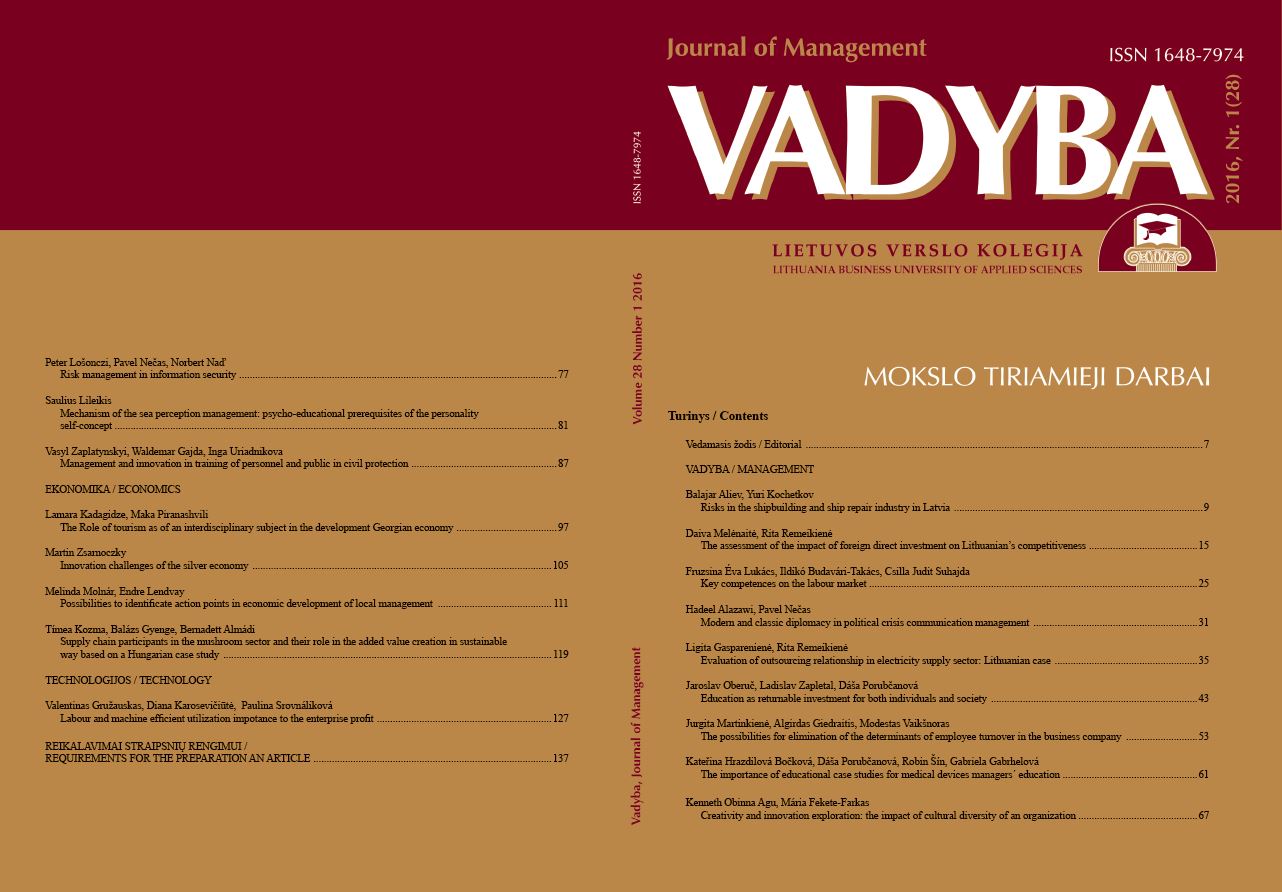EVALUATION OF OUTSOURCING RELATIONSHIP IN ELECTRICITY SUPPLY SECTOR: LITHUANIAN CASE
EVALUATION OF OUTSOURCING RELATIONSHIP IN ELECTRICITY SUPPLY SECTOR: LITHUANIAN CASE
Author(s): Ligita Gasparėnienė, Rita RemeikienėSubject(s): Social Sciences, Economy, Theology and Religion
Published by: Lietuvos verslo kolegija
Keywords: outsourcing; outsourcing relationship; relationship problems; electricity supply, Lithuania
Summary/Abstract: Although the analysis of the relationship between a customer and a vendor (an external service provider) has earned sufficient scientific attention while researching private sector, what concerns public sector, there is a tendency to focus on the analysis of the efficiency of outsourcing relationship rather than concentrate on the nature and peculiarities of the relationship itself. This determined the aim of the article – to evaluate outsourcing relationship in electricity supply industry in Lithuania. The methods of the research include the systematic analysis of the scientific literature and the expert evaluation. The theoretical analysis of the scientific literature has enabled to form the structural model of outsourcing relationship between a customer and a vendor and this way identify the theoretical determinants of outsourcing relationship from customer and supplier’s point of view. Considering the subject of the research – Lithuanian electricity supply sector, the directions of outsourcing relationship in electricity supply chain have been defined. The empirical part of the research (expert evaluation) has revealed the most significant negotiation, contract making, contract performance and confirmation, observation (monitoring), partnership and dissatisfaction factors that have the impact on outsourcing relationship in Lithuanian electricity supply sector. The main causes of outsourcing relationship problems in the analysed sector have also been identified. They include such internal issues as the lack of clear goals and objectives and lack of coordination between management teams. Incompatibility of the parties is also attributed to extremely significant causes of outsourcing problems in the analysed sector. The main external causes of outsourcing relationship problems include economic and market changes, which are not directly influenced by the operating entities. With reference to the research results, it can be concluded that for qualitative outsourcing collaboration in Lithuanian electricity supply sector, strategic goals and objectives must be defined, contract performance standards must be followed and smooth operation must be ensured, focusing on the constant contract performance control as well as observation of the policy efficiency.
Journal: VADYBA
- Issue Year: 28/2016
- Issue No: 1
- Page Range: 35-41
- Page Count: 8
- Language: English

